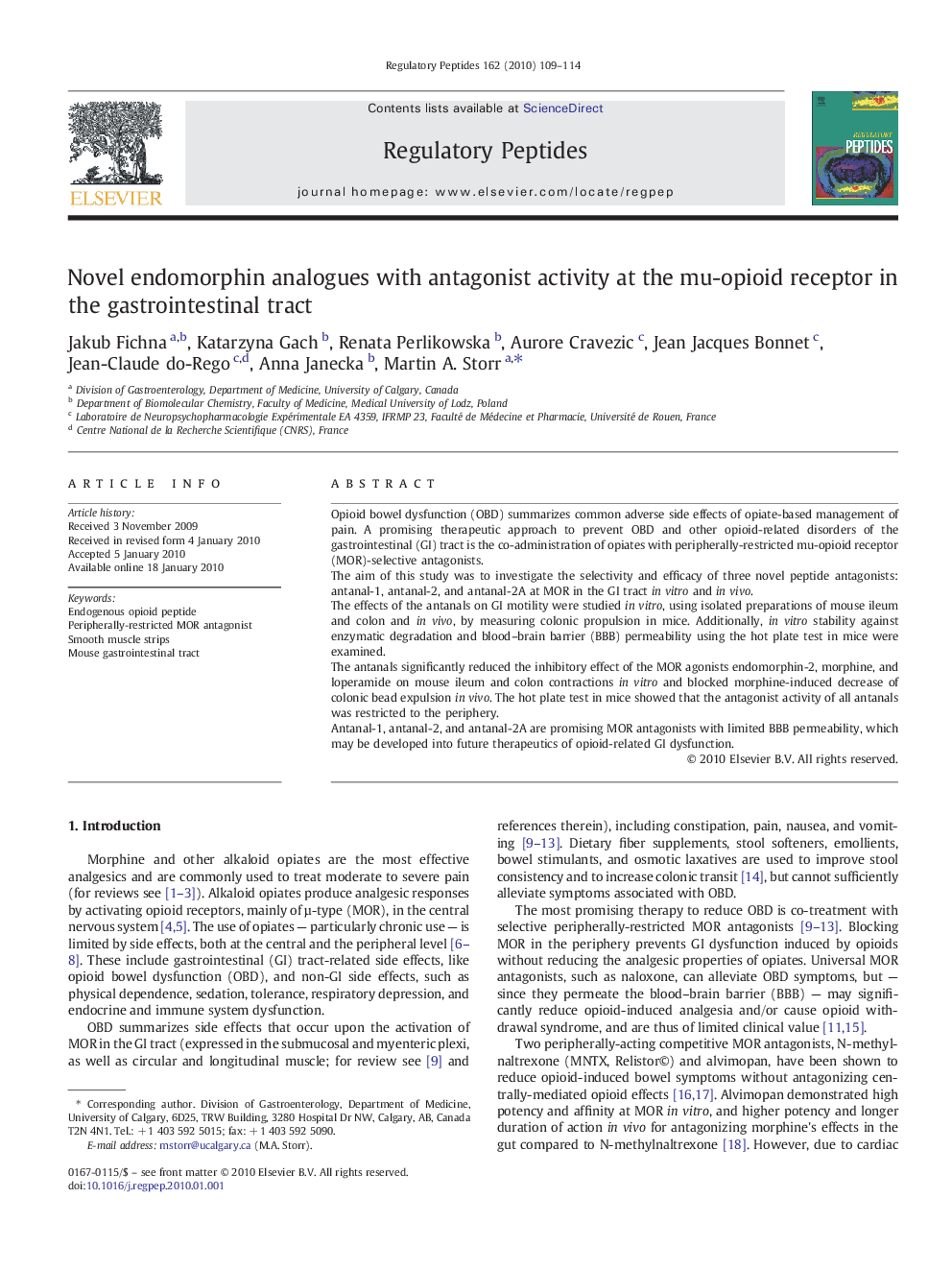| Article ID | Journal | Published Year | Pages | File Type |
|---|---|---|---|---|
| 2022863 | Regulatory Peptides | 2010 | 6 Pages |
Opioid bowel dysfunction (OBD) summarizes common adverse side effects of opiate-based management of pain. A promising therapeutic approach to prevent OBD and other opioid-related disorders of the gastrointestinal (GI) tract is the co-administration of opiates with peripherally-restricted mu-opioid receptor (MOR)-selective antagonists.The aim of this study was to investigate the selectivity and efficacy of three novel peptide antagonists: antanal-1, antanal-2, and antanal-2A at MOR in the GI tract in vitro and in vivo.The effects of the antanals on GI motility were studied in vitro, using isolated preparations of mouse ileum and colon and in vivo, by measuring colonic propulsion in mice. Additionally, in vitro stability against enzymatic degradation and blood–brain barrier (BBB) permeability using the hot plate test in mice were examined.The antanals significantly reduced the inhibitory effect of the MOR agonists endomorphin-2, morphine, and loperamide on mouse ileum and colon contractions in vitro and blocked morphine-induced decrease of colonic bead expulsion in vivo. The hot plate test in mice showed that the antagonist activity of all antanals was restricted to the periphery.Antanal-1, antanal-2, and antanal-2A are promising MOR antagonists with limited BBB permeability, which may be developed into future therapeutics of opioid-related GI dysfunction.
